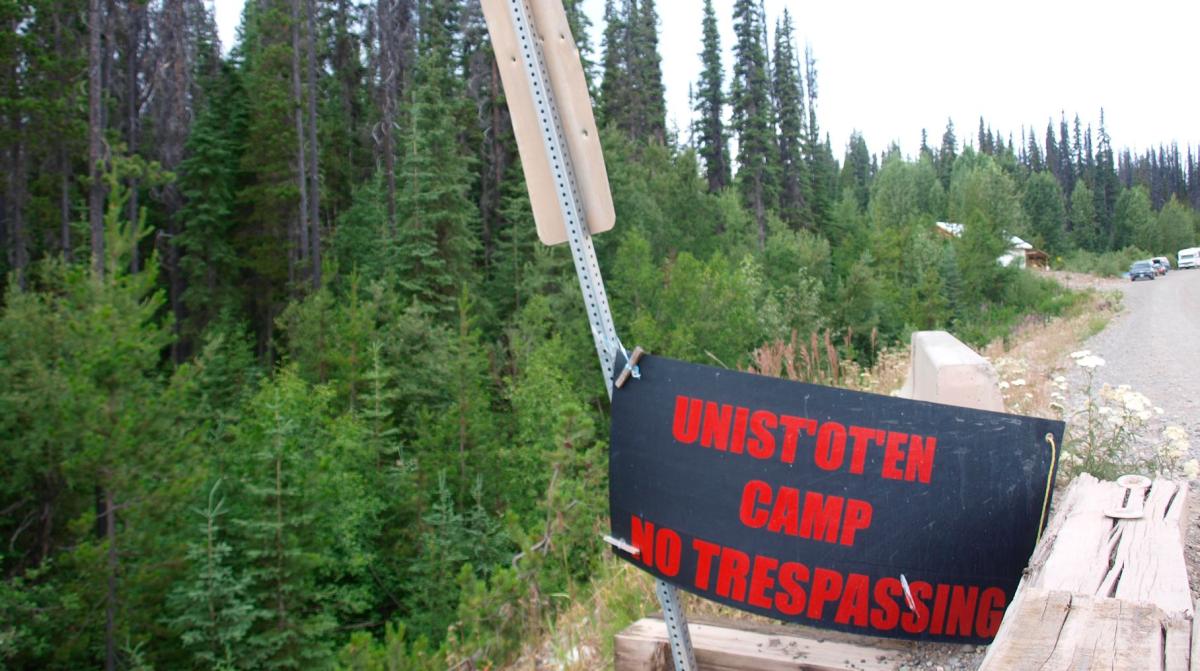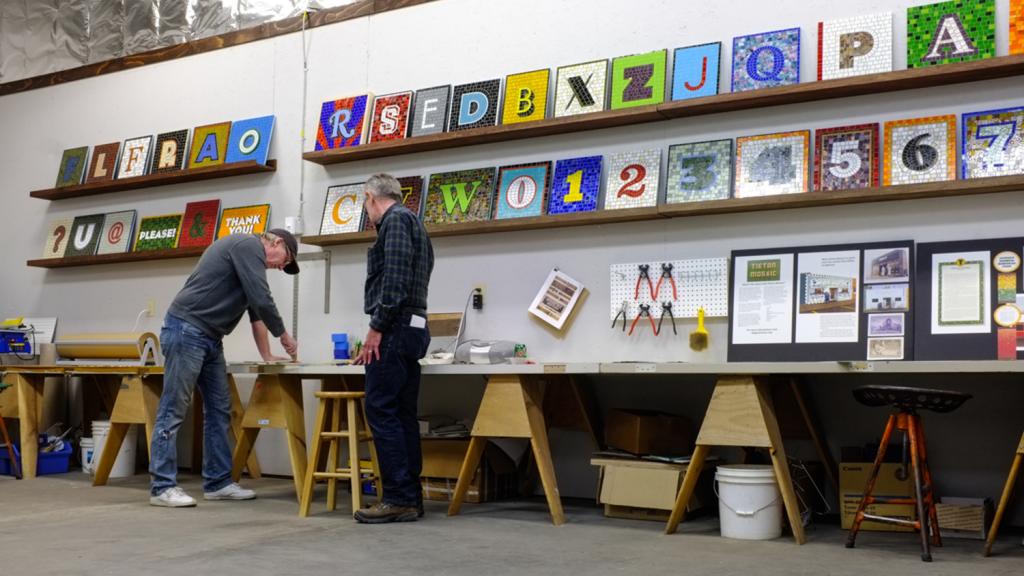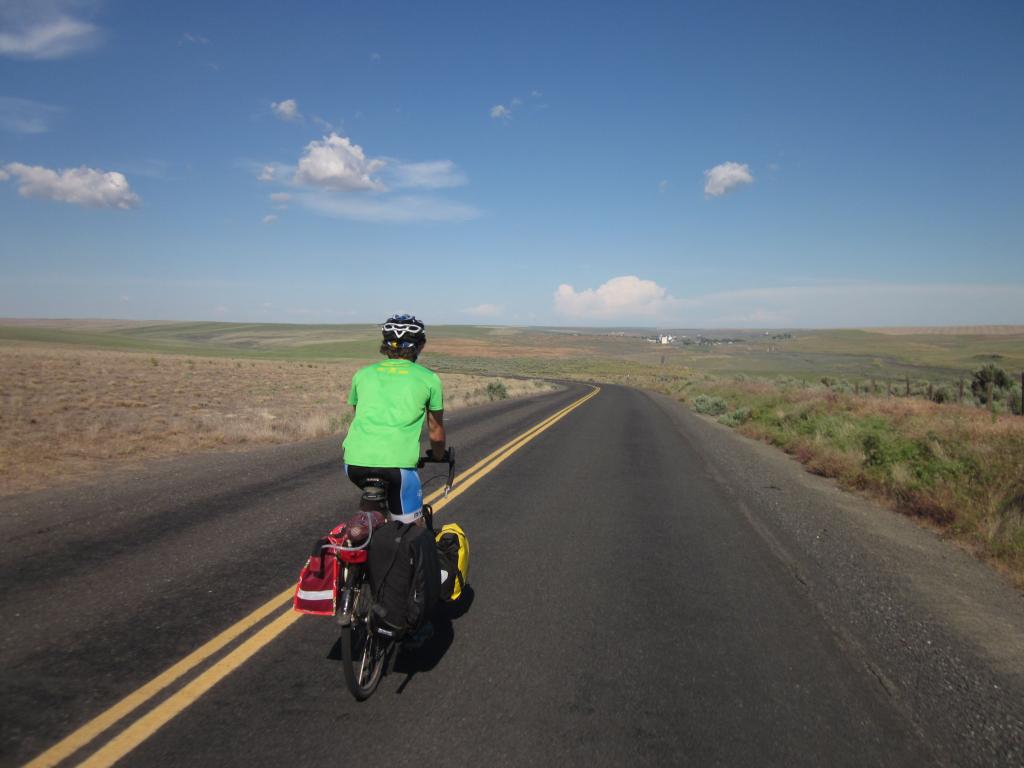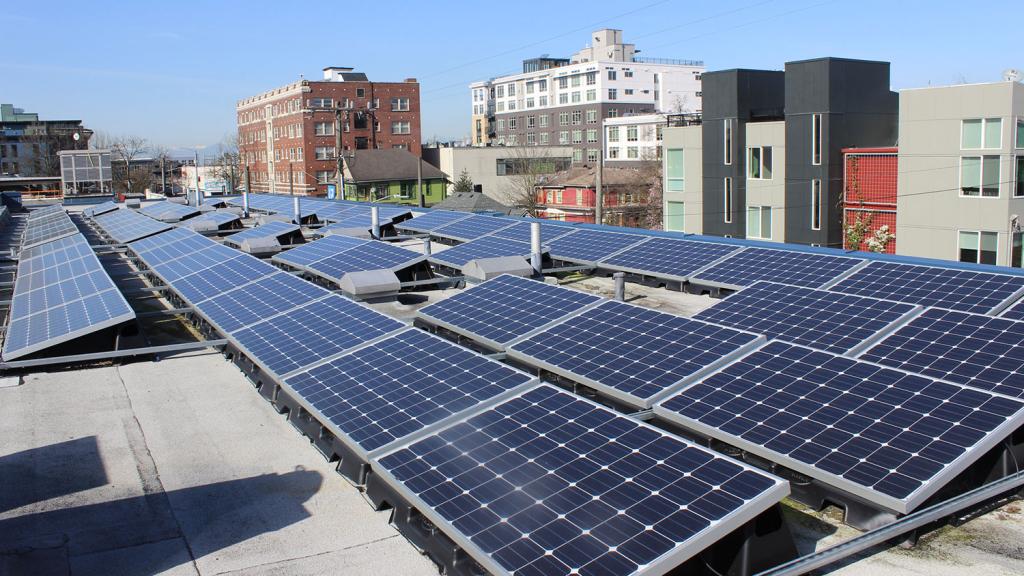The Unist’ot’en Camp, an indigenous-led pipeline blockade in remote, mountainous central British Columbia, is permeated with the savory smell of bear poutine pizza — shredded bear meat, homemade French fries, green onions, and cheese on a scratch whole wheat crust. Ambrose Williams, a member of the nearby Gitxsan nation, is cooking dinner tonight for his partner Erin’s birthday. Because it’s a special occasion, someone has ventured down into the work-in-progress root cellar to excavate a jar of spicy dill pickles made from cucumbers grown in the camp garden.
An enormous pot of water collected from the river heats on a wood-fired stove top, to be used for dishwashing and cooking. To the left of the stove, chopped firewood and kindling pile up in shelves that must be restocked every few days from the log heap just outside this main cabin. Beyond that, a screen on the wall displays the charge level of the camp’s row of 12-volt batteries, which store energy harvested by south-facing solar panels propped up on the steep-pitched metal roof. The Unist’ot’en Camp lies so far north that the panels sit nearly vertical; for much of the year the sun doesn’t venture far above the sout... Read more




